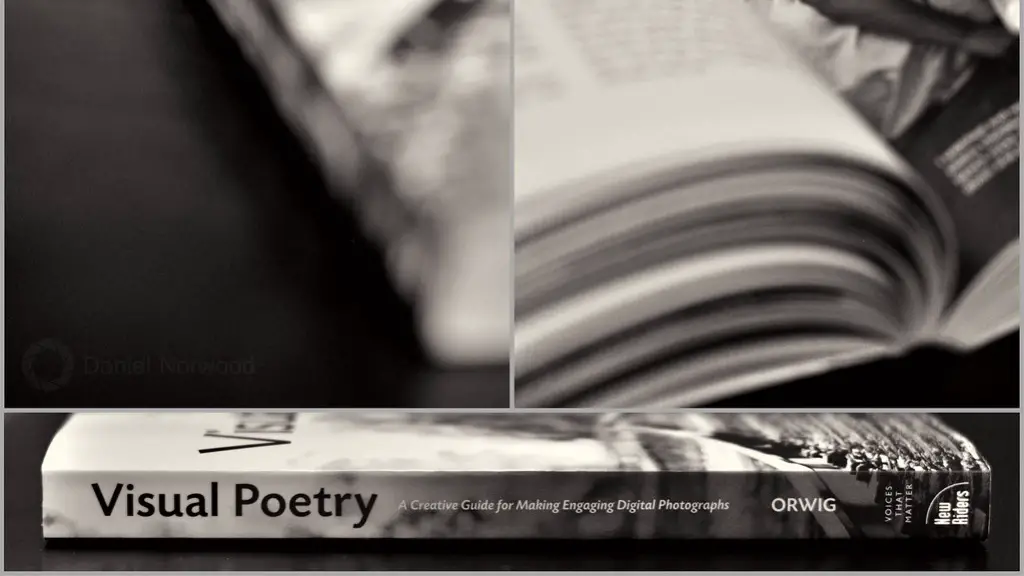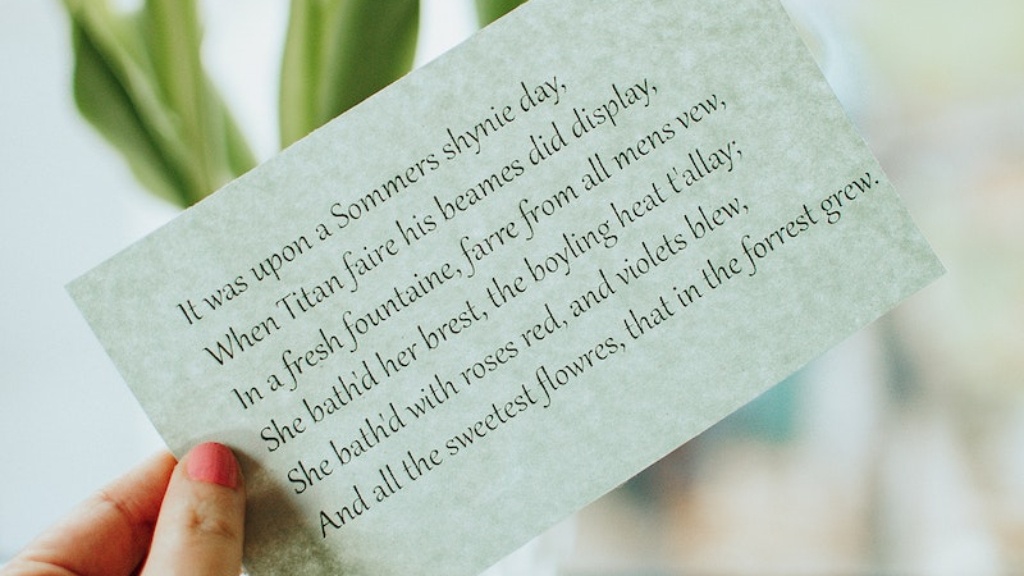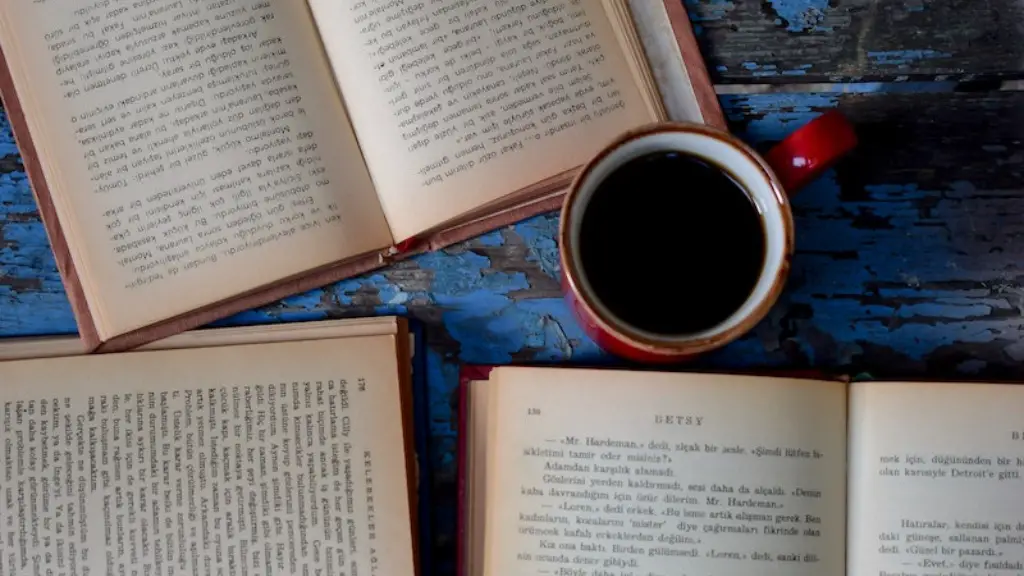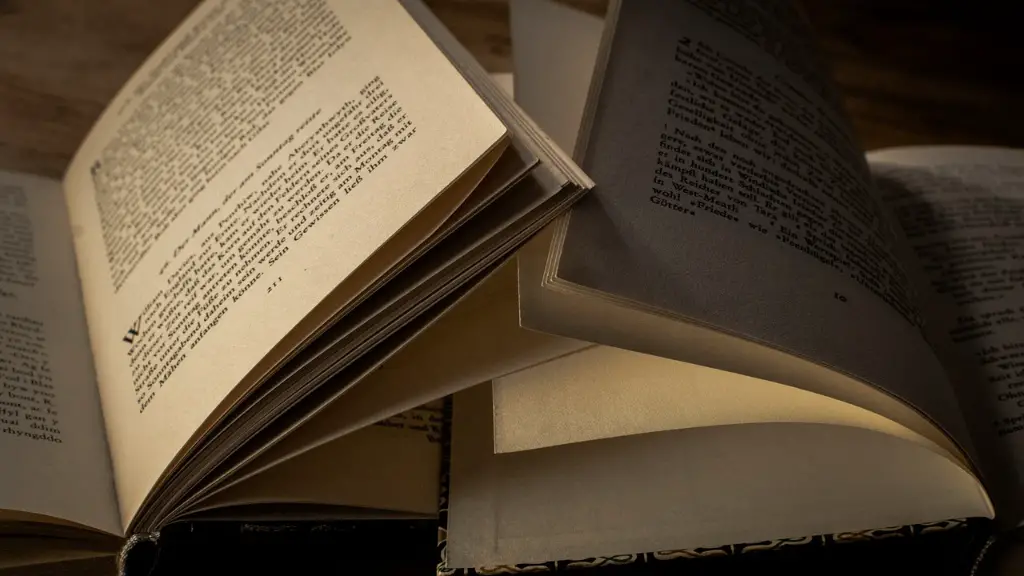When writing a paper or producing a documentary that includes quotes from a poem, it is important to follow MLA formatting guidelines. This includes using proper MLA formatting when quoting the poem. Quoting poetry in MLA format can seem intimidating at first, but it becomes easier with practice and knowledge of how to properly cite a poem. To start, it is important to be aware of the two types of quotations that can be used when quoting poetry: a direct quotation and an indirect quotation.
A direct quotation is when an author directly quotes lines from a poem, using the exact words written by the poet. It is important to note that the original line of poetry should be used, and even if the student changes the quotation in any way, either by adding a word or deletions, it should still be put in quotation marks. To properly cite a direct quotation, the writer should include the author’s last name and the line number that relates to the quotation. For example: “The time has come,” the Walrus said, “To talk of many things” (Carroll 5-6).
An indirect quotation, also known as a paraphrase, is when the student expresses the meaning of a poem in their own words. In this case, the student should still use the author’s last name in the sentence, but they do not need to include the line number. It should be noted that even though direct quotations must include the line number, indirect quotations should still reference the poem as a whole. For example: Carroll tells us that the time has come to talk of many things (5-6).
When using in text citations when quoting poetry, the author’s last name should be included, followed by a space and the line number of the poem, or if quoting indirectly, the page number of the source. It should be noted that if the lines of the poem are not consecutive, each line should be separated by a comma. For example: The Walrus said, “To talk of many things” (Carroll 5, 6).
In addition, it is important to include the poet’s name, the poem’s title, the collection from which the poem is taken, and the publication year in the works cited page, formatted in the correct MLA style. It is also important to note that when quoting a poem, the title of the poem should be put in quotation marks and the title of the work the poem is taken from should be in italics. For example: Carroll, Lewis. “The Walrus and the Carpenter.” Through the Looking Glass and What Alice Found There, Penguin Classics, 2001, pp. 5-6.
Examples of Quoting Poetry in MLA Format
When writing papers and documentary scripts, there are many examples of how poetry can be quoted in MLA format. For example, a student could cite a line from a poem by a famous poet, such as “The forms of things unknown, the poet’s pen, Turns them to shapes and gives to airy nothing, A local habitation and a name” (Shakespeare 7-9). Another example of quoting poetry in MLA format is when a student quotes an anonymous poem, such as “I wandered lonely as a cloud, / That floats on high o’er vales and hills” (Anonymous 1-2).
Tips for Quoting Poetry in MLA Format
When quoting poetry in MLA format, there are some tips that can help the student write their paper seamlessly and accurately. Firstly, it is important to determine what type of quotation is being used, direct or indirect, so that the citation is correctly formatted. Secondly, it is important to include the line numbers of the poem, both in the in text citation, and in the works cited page. Lastly, it is important to double check the accuracy of the quotation, as well as the formatting, to ensure the paper or script is correctly written.
Advantages of Quoting Poetry in MLA Format
When quoting poetry in MLA format, there are many advantages for the student. Firstly, it allows the student to correctly credit the poet in an academic paper, which is important in terms of citation and academic integrity. Secondly, it serves as a guide for the student to make sure they are accurately citing the poet and poem, and that the in text citation and works cited page are both formatted correctly. Lastly, it allows the student to engage the reader of their paper and add depth with references to a poem, creating an intellectually stimulating essay or documentary.
Disadvantages of Quoting Poetry in MLA Format
Despite many advantages, there are also some drawbacks to quoting poetry in MLA format. Firstly, it can be intimidating for students who are unfamiliar with citation styles, as it can be confusing. Secondly, students may forget or miss important elements of the citation, such as the line number or the author’s last name, which can lead to inaccuracies in the paper. Lastly, incorrectly formatting a citation can lead to decreased grades and penalties, which could be significant for a paper or script.
Impact of Quoting Poetry in MLA Format
When quoting poetry in MLA format, it can have a significant impact on the outcome of a paper or document. Properly citing a poem shows the reader that the student is knowledgeable about the material, as well as the writing conventions related to the field. On the other hand, if the poet is incorrectly credited or the lines are not properly formatted, it could lead to penalties and decreased grades, which can be detrimental to the student. It is therefore important to ensure that the in text citation and works cited page are both formatted correctly when quoting poetry.
Benefits of Quoting Poetry in MLA Format
When quoting poetry in MLA format, there are many benefits for the student. Firstly, it allows the student to correctly cite the poem, which is important for both academic integrity and for the reader of the paper to easily access the source. Secondly, quoting poetry can add extra depth to a paper, as long as it is quoted correctly. Lastly, it allows the student to engage the reader and provide an intellectually stimulating essay or documentary script.
Challenges of Quoting Poetry in MLA Format
When quoting poetry in MLA format, there are some challenges that the student may face. Firstly, it can be difficult to correctly identify the poet and poem, as well as to determine which lines should be included in the quotation. Secondly, improper formatting of the in text citation or the works cited page can lead to issues with academic integrity. Lastly, it can be difficult to judge when a quotation is considered direct or indirect, causing issues with how the citation should be formatted.
Conclusion
Overall, it is important to be aware of the guidelines when quoting poetry in MLA format. Knowing the differences between direct and indirect quotations, as well as ensuring that the citation is properly formatted, can help avoid penalties or decreased grades. By understanding how to properly cite a poem, students can not only avoid issues with academic integrity, but also provide an interesting and engaging essay or documentary script that adds depth and complexity to their work.



